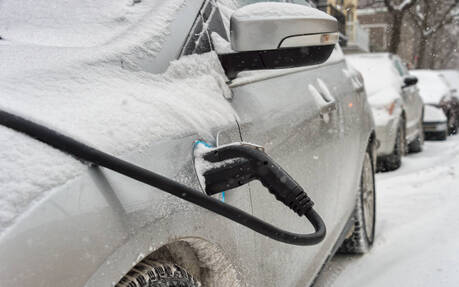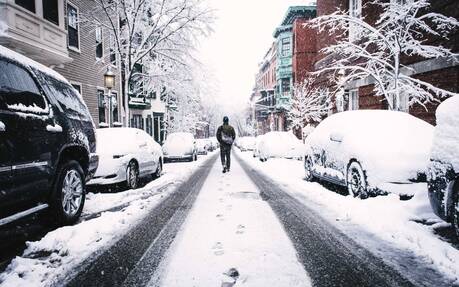5 Tips to Protect Your Car in a Winter Lockdown
Lockdowns and curfews resulting from the second wave of COVID-19 are creating even more problems for cars than the first wave. The reason is simple: we’re now in the thick of winter.
In many places across Canada, there is a notable increase in demand for battery assistance service due to the high number of batteries that die in the cold when vehicles are barely driven.
- Also: 10 Winter Driving Tips for When You’re Actually Driving
- Also: Survey: 72 Percent of Canadian Drivers use Winter Tires
“Cars are a bit like us! When we sit for too long, at some point we need to get up and move around,” says Denis Pageau, Partnership Officer, CAA-Quebec Approved Auto Repair Services.
What exactly are some of the problems that can arise when a car remains parked for too long, especially during winter? First, as mentioned above, the battery may get weaker and not have enough power to start the engine. Even worse, a completely dead battery could deprogram the engine control module. EV batteries may lose their charge quickly.
Then there’s moisture. Even in the cold season, it can get into fluids such as engine oil, develop rust or make the brakes stick and result in an expensive repair sooner rather than later. And let’s not forget that tires can become deformed or cracked with prolonged inactivity and exposure to freezing temperatures.

5 Car Tips From CAA During a Winter Lockdown:
1. Hit the road! No need to head to the Rocky Mountains or even leave the city—just driving for 8-10 km is enough to avoid most problems with the engine, brakes and electric systems. Running the engine while the vehicle is parked isn’t enough, though, because you’re not giving your battery a chance to charge while driving.
2. Use a smart charger to keep the electrons moving and preserve the charge in the battery. It’s a small, fairly inexpensive device that can make a big difference. What’s more, you shouldn’t charge or boost a damaged or frozen battery, for example when the casing bulges at the sides.
3. Keep the fuel tank three-quarters full to avoid condensation inside the tank, which could freeze the fuel lines. This is particularly important after sudden drops of temperature. Cars that spend their time in a heated garage are more at risk.
4. Don’t apply the parking brake at home if it’s possible and safe to do so. However, you’ll want to use it when you go shopping or skiing to keep it in working order, instead.
5. If you have an electric vehicle, the best thing to do is to leave it plugged in and set charging times. For recommendations specific to your model, read the owner’s manual.

